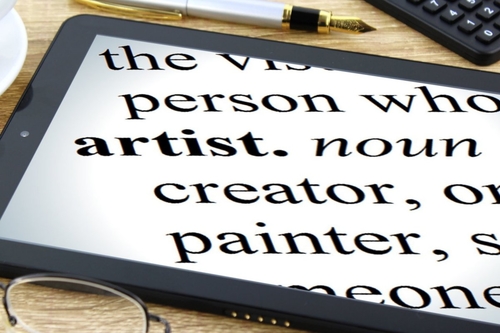I would be hard pressed to find anyone in my life that isn’t connected to an artistic pursuit. Before entering graduate school for publishing, I was a professional actor and spent many years entrenched in the performing arts. I’m engaged to a musician and some of my closest companions are actors, dancers, writers, and visual artists. There tends to be a lot of confusion among my peers about how to support themselves in their chosen artistic industry without sacrificing their sensibilities. Topics of discussion include: Do I need an agent? Is this article click bait? Would licensing this song for a car commercial be considered selling out?
Now, I’m not a fan of making sweeping generalizations about an entire generation and pigeonholing people into categories. See, for example, an article that claims millennials are “totally cool with selling out.” The piece makes a valid point about how economic instability has changed the perspective of creators, but I don’t think it’s fair to say that the artistic climate has completely shifted away from the idea that corporate investment can damage an artist’s work. I have many creative friends that very much still believe in “sticking it to the man” and would rather struggle forever in obscurity before selling their work off to big businesses.
Whether you’re an author, musician, illustrator, actor, etc., pursuing a career as an artist has always been challenging. We are living in a time where many people have a newfound agency to promote their own work without help from outside financial backing. Though this ability to self-produce has brought about more artists and a greater potential for diverse, engaging work, it’s also created an overwhelming saturation of content in every artistic field.
Assuming success means living entirely off of one’s art, how does an artist “make it” in this hyper-competitive world? Sure, an extremely motivated, business-minded individual can promote his or her art online until there are enough people willing to contribute financially to the product. But in order to maintain stability and look toward scaling up to a maximum target audience, it’s almost always necessary for the creator to enlist a production team for support. In the author’s world, this is where a professional publishing house would step into the limelight. For some select writers, the prospect of signing a contract with a company very quickly elicits images of “the man” in his fancy suit and high tower, counting his money as he rips carefully constructed content to shreds.
I can’t speak for “the man,” but what I can lend is the perspective of someone who has worked on both sides of two creative industries. Though I earned my BFA in theater performance and was an actor for a number of years, I spent time employed in theater administration and development as well. I was also a journalist before eventually steering myself to my current position of becoming a publishing professional. I know the seedy, money-grubbing side of entertainment production exists, but I am fortunate to have navigated toward producers that not only want to promote financially viable content but also pieces that contribute something unique and meaningful to the cultural conversation.
In both my work in theater and my work now with Ooligan Press, I have encountered dedicated developers that would be an asset to any creator. They work just as long (or longer) hours as the artist, and though their names may not always be plastered on the final product, the mission to produce good content is as much as a motivator to a production team as it is to the artist. I’m not calling for all artists to sacrifice their independence, but I am saying that it’s important to find some support if you want to create something lasting. If you’re a writer out there—or whatever your artistic medium may be—I strongly encourage you to go through the process of finding a team that will dedicate itself to producing and publicizing your work. After all, what’s the point of that cathartic piece of theater, captivating painting, or novel that elicits an uncontrollable ugly cry if it never finds an audience?

